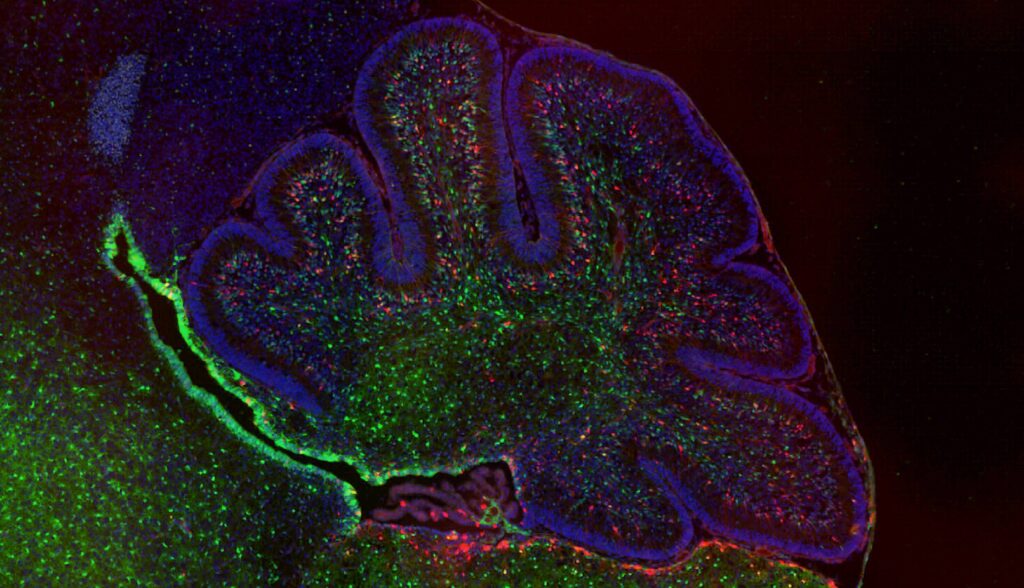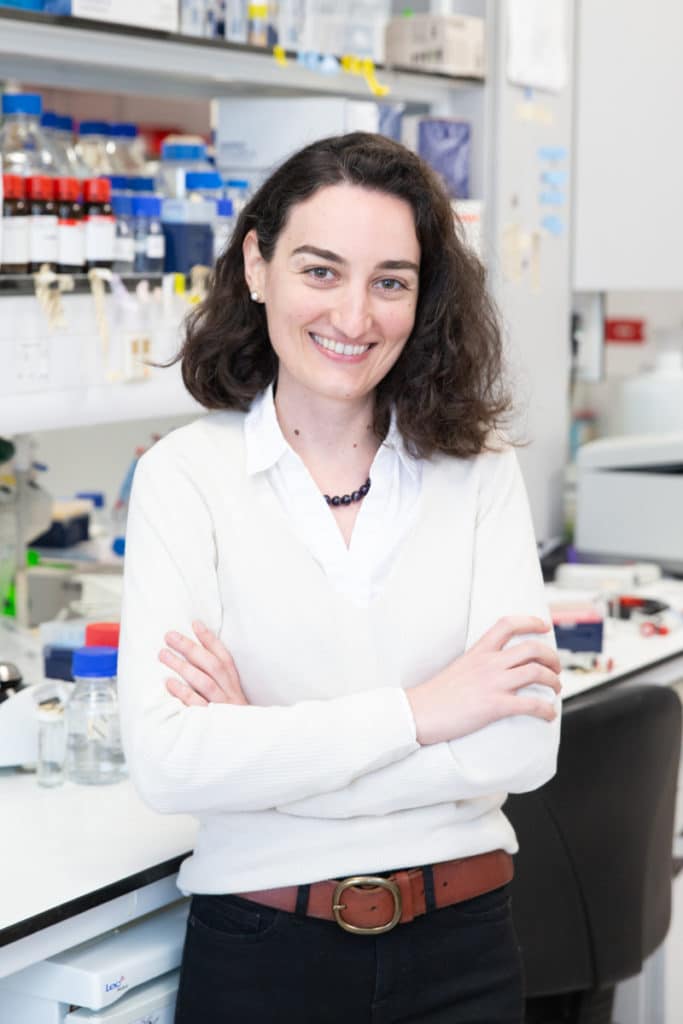Korean visitors come to learn about Institute’s core funding model
September 23, 2022
Read more

Regeneration in the mature brain is limited. An understanding of the molecular mechanisms that regulate self-renewal, proliferation, differentiation, and importantly, the lineage plasticity of neural stem/progenitor cells during development and homeostasis is crucial for discovering how to stimulate brain repair upon injury.
Sumru’s previous work shows that the neonatal mouse cerebellum has remarkable regenerative potential as it can recover from injury at birth by various mechanisms, one of which involves lineage plasticity. However, the adult cerebellum has lost this regenerative ability, despite the existence of stem-like cells. Using comparative approaches in this powerful system,the Bayin lab will identify the signalling pathways and gene regulatory networks that control the developmental and regenerative responses of cerebellar progenitors in neonates and determine how they differ in adults. Candidate stimulators of neonatal regeneration will be tested through in vitro and in vivo stem cell assays, and then pro-regenerative pathways will be assessed for their ability to stimulate stem cells. Finally, the lab will develop models to translate their findings from mouse to human. This work will provide fundamental knowledge on the regulatory mechanisms that govern neural progenitors and harnessing new findings will provide a basis for in vivo manipulation of stem cells to facilitate brain repair.